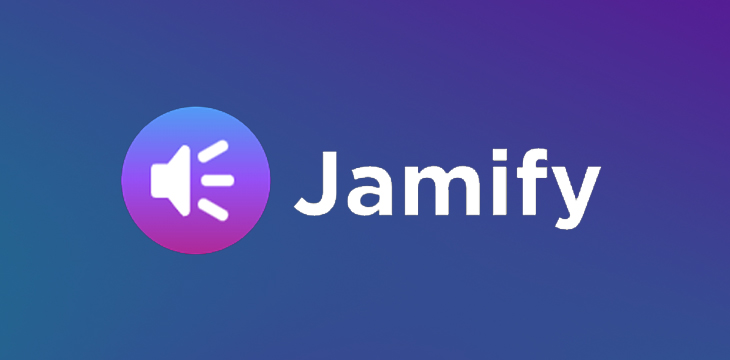|
Getting your Trinity Audio player ready...
|
As part of CoinGeek’s SXSW coverage, we are reaching out to the various music platforms building on BSV blockchain to learn more about how they empower artists, create unique revenue streams, and strengthen the relationship with fans. In the next interview of this series, we interview Jamify, where artists earn from their craft, engage with fans, and be heard by everyone.
How does your platform uniquely monetize audio content?
Jamify: We plan to tokenize audio content and use it like a pass to access other services and benefits. It’s almost like each artist gets to run their own direct membership club.
What are the flaws in Spotify’s (for example) business model?
Jamify: Their model fits for now, but new tools have come online that allow artists to deal more directly with their fanbase in areas that have been traditionally controlled by specialists in the industry on their behalf. Spotify and others have plenty of time to adapt, but things will move quickly if artists learn how beneficial this technology can be for them.
How does your platform connect fans and artists more directly?
Jamify: Since a fan holds audio NFTs in their wallet, platforms can check for them to allow access to special features. One example might be joining a group chat with the artist for token holders only or getting a discount or first dibs on exclusive merch. There are endless ways to use this technology to nourish the artist-fan relationship.
Do you view the pay-per-stream model as having too much friction for listening to songs vs. ads or subscription models?
Jamify: I think, depending on the context, they all have their strengths and weaknesses. For forward-thinking artists, there is a potential future where allowing free streaming earns more than paywalled access to the music.
If metered streaming is really what the market wants in the end, we have a fast, cheap payment system we can use to deliver that too.
Do you view blockchain technology as disrupting the current music industry?
Jamify: Yes, I definitely think it will have a massive impact in several ways. From the way we store files to the way users contribute to content curation, the way we list things for sale, tokenize digital media, and grant access rights, etc.
All of these things will matter to the music industry, and anyone who wants to stay relevant will need to pay close attention in the coming years.
What role do you see NFTs play for artists in engaging their fan base?
Jamify: I see it being an essential tool. It’s about treating your craft more like an independent business. Creating ways to earn directly from your fans while also giving them new ways to return value to the fans. It’s a win-win situation, and even alongside the traditional system, they will find a place.
Why did you choose to implement Bitcoin SV for your platform?
Jamify: I realized a long time ago everyone would eventually migrate to where this stuff actually scales and can handle the demand of the rest of the world. Other factors like a fixed protocol, being proof-of-work based, and having low transaction fees are also massively important.
Have you, or do you plan to implement any aspects of other blockchains (for example, Ethereum, Solana) into your platform as well?
Jamify: Actually, yes, but I can’t talk about it yet. 🙂
Jamify has teased a fungible token $JAM in the past—are there any updates on its launch?
Jamify: The token space in BSV has been a bit turbulent recently with the exit of RUN. There are some developments happening on that front that I think will clear a path forward for this, but it’s not far enough along to where I can give any more details just yet.
What are your thoughts on the Ordinals developments occurring on BTC and other blockchains (Litecoin, Dogecoin) and how that potentially impacts music NFTs moving forward?
Jamify: I think the excitement and development spirit it has encouraged is amazing. There are some unique and interesting things about Ordinals that will likely continue to spread to other chains. I wouldn’t be surprised if it did eventually have some impact on Jamify.
At the very least, the adoption of music NFTs will certainly pick up on BTC in the short term, and the appetite for more space, lower fees, and more flexibility will grow as well.
How does Jamify implement Open Social protocols?
Jamify: Jamify is only starting to implement BSocial by announcing new albums when minted, and when liking artists, albums, and tracks. It will definitely become more deeply integrated as time goes on.
Thank you, Jamify, for answering my questions. I hope the readers learned more about the platform and how they uniquely approach monetization in the music industry.
This article was lightly edited for clarity purposes.
Watch: Entertainment, Sports & Blockchain

 02-17-2026
02-17-2026 




